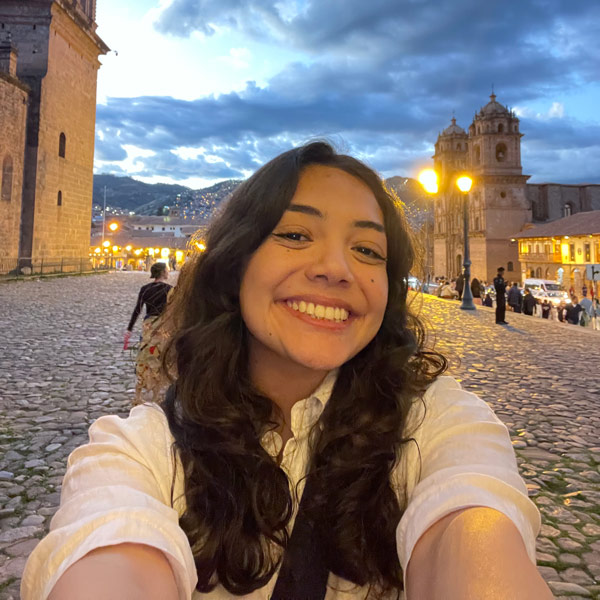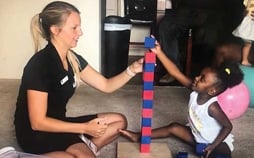BYU Working to Uncover How Media Affects Families
Project aims to understand the long-term effects of media on children.
July 2024
 Sociology student Citlalli Zavala traveled to Bolivia with BYU’s Project Evaluation and Assessment Team (PEAT). PEAT provides students with hands-on experience gathering and assessing data to improve the effectiveness of nonprofits or other organizations that seek to do good in the world.
Sociology student Citlalli Zavala traveled to Bolivia with BYU’s Project Evaluation and Assessment Team (PEAT). PEAT provides students with hands-on experience gathering and assessing data to improve the effectiveness of nonprofits or other organizations that seek to do good in the world.
“We gathered a lot of data,” says Zavala. “I’m fluent in Spanish, so most of what I did in Bolivia was translate during our interviews with administrators and families.”
In Bolivia, PEAT students evaluated projects sponsored by Yapay Bolivia, an education and healthcare nonprofit. Yapay Bolivia asked PEAT to look at several organizations—including orphanages, after-school programs, and hospitals. The BYU students prepared interview guides, strategic questions, logic frames, and other evaluation tools. “For each evaluation, we had a student lead and a team of student researchers,” says Zavala.
One of the programs that PEAT looked at was Vida Nueva, which serves and supports children who have been abandoned or orphaned. The organization also supports the families that step in to help these traumatized children.
“During the interviews, I was the one listening in Spanish and translating to English and back again. I tried not let my emotions get the best of me while listening to the stories of these aid workers and families,” says Zavala. “There were a lot of tears in all our eyes during these interviews, but later on I broke down. It was eye opening to see both the need and the good people who are trying to help.”
As part of PEAT’s time with Vida Nueva, the BYU students participated in a field day with these families. Zavala says, “It was inspiring to see the good that is happening and the kids just being kids.”
PEAT also assessed after-school programs Musuq Sunqu and Tikarispa. These programs provide meals, homework assistance, and recreational activities for children whose parents are absent, working, or unable to provide nutritious food. Some of these children speak Spanish as their second language, and their parents are unable to help them with their Spanish schoolwork. The after school programs provide much-needed language and homework resources.
“Nutritious food is expensive in Bolivia, and children’s education is important everywhere,” says Zavala. “But parents knowing that their children are being taken care of—that’s something that goes a long way.”
As outsiders, PEAT’s BYU students observe and gather data that will bless people in need. But while the students’ reports are objective, their experiences are very personal. “We got to know people and learn about their lives,” says Zavala. “Gathering their stories so that their voices can be amplified was amazing.”
“The support for children in every community we visited in Bolivia was phenomenal,” Zavala says. “Looking back, I have reflected on what my goals are and what they ought to be. I’ve always had in my mind to go to law school so that I can help Latinos. After this experience, I feel even more of a desire to be an attorney and an asset for good in my community.”

Project aims to understand the long-term effects of media on children.

With her mother gone, Niederhauser, who is the youngest of five children, felt added pressure to cover her college education expenses herself.

Eight students’ experiences in the BYU College of Family, Home, and Social Sciences are highlighted.